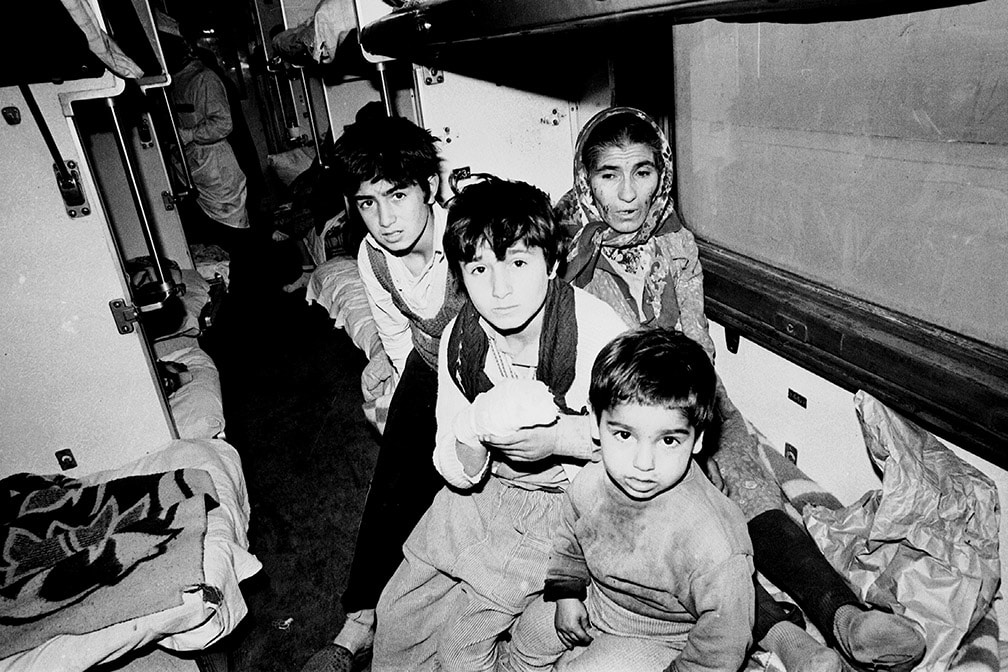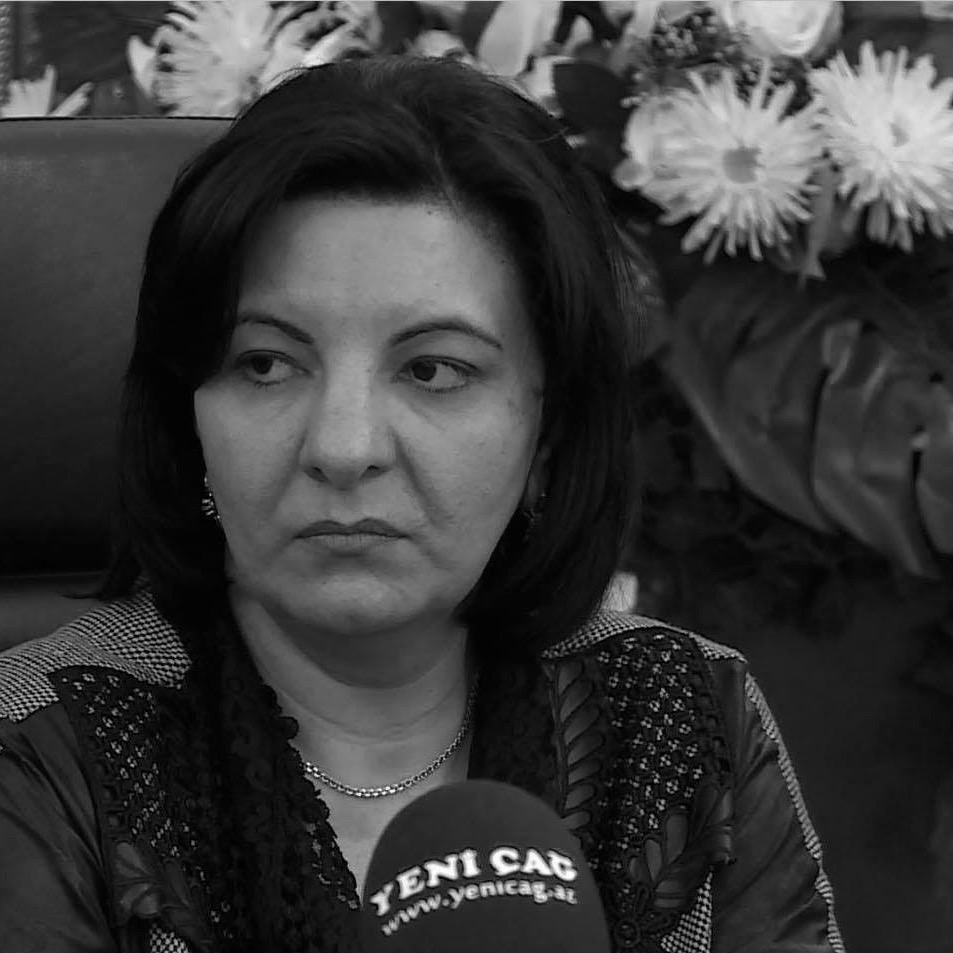 Azerbaijani refugees from Khojaly following the massacre on Feb 25/26, 1992. Source: Wikimedia Commons. Ilgar Jafarov under the Creative Commons Attribution 3.0 Unported license.
Azerbaijani refugees from Khojaly following the massacre on Feb 25/26, 1992. Source: Wikimedia Commons. Ilgar Jafarov under the Creative Commons Attribution 3.0 Unported license. This year marks the 30th anniversary of the most tragic and transformational experience of my life, an event that ended the lives of so many, and altered life for everyone I knew.
This year also marks my 50th birthday, which is a true milestone, and it feels existentially profound to share this anniversary alongside the 30th memorial of the night of February 25/26, 1992, when I was captured by foreign invaders, imprisoned and tortured for 8 days.
30 years ago, my extended family huddled in the foyer, flinching at the terrible, unfamiliar noises that kept getting closer, as we braced ourselves in prayer before fleeing our home, bullets ripping through the night, the smoky air smothered in screams. 30 years ago, my life went from normal to terrifying.
30 years ago, my hometown of Khojaly in Azerbaijan’s Karabakh region was invaded by Armenian troops, who intentionally targeted civilians – men, women, children, and the elderly, brutally slaughtering 613 Azerbaijanis. I was 20 when it happened, painstakingly innocent, hopeful and completely sheltered from the monstrousness of indiscriminate war.
Throughout the nearly 30 years after that horrendous night, Armenia remained as a violent occupier of not only my once idyllic hometown of Khojaly, but the entire Karabakh and East Zangezur regions of Azerbaijan, which account for approximately 20% of Azerbaijan’s sovereign territory. As a result of this horrific invasion, about 800,000 Azerbaijanis, like myself, were forcibly displaced from our homelands. The violent invasion killed 20,000 Azerbaijanis and wounded 100,000. As if that was not enough, Armenian lobby groups in the United States have spent tens of millions annually in attempts to manipulate the American polity and public, to support Armenia’s unlawful war, despite widespread international condemnation by the United Nations, Amnesty International, Human Rights Watch and the European Court of Human Rights, to name a few.
Israeli President Reuven Rivlin recalled Khojaly in his 2015 address to the U.N. General Assembly on International Holocaust Commemoration Day, asking if the international community has been effective enough in preventing genocides that happened since the Shoah, like “the killing of Azerbaijanis in Khojaly”.
President of #Israel @PresidentRuvi Rivlin speaking on #Khojaly #Genocide (committed by #Armenia on Feb. 26, 1992 against #Azerbaijani civilians) at @UN GA, mentioning this #genocide alongside others that the UN could not stop after #Holocaust pic.twitter.com/22yy77vWuR
— Durdane Agayeva (@KhojalySurvivor) February 23, 2021
President Rivlin recognized Khojaly for the atrocity it was.
In the 30 years since the massacre I have required spine surgeries to address the damage of torture, married a true and loving partner, and together we raised a gorgeous daughter.
Before I endured 8 days of the most violent, violating and damaging brutality in the Armenian torture camps and then released from captivity in exchange for cigarettes and gasoline, I had spent 20 beautiful years of my life in Khojaly. I had a beautiful view from my bedroom window in Khojaly, a view I may never see again, and even so, it would be unrecognizable.
My life today, 30 years since the Khojaly Genocide and 50 years since I was born, is a miracle, because that night, those soldiers murdered 106 women in Khojaly. That night, Armenian armed forces murdered 63 children – some of them babies. That night, 70 eldery men and women were gunned down in the streets, or in the fields en route to the coverage of the forest, if they managed to make it that far. That night, eight entire families were utterly extinguished from the world; their lives and their lineage. 150 children’s fathers or mothers were murdered, and 25 children were completely orphaned. One night, 30 years ago!
Of the 30 years since Khojaly, the last decade has been especially transformational; I traveled the world, sharing my story with other survivors and champions of human rights, working with organizations and world leaders to face the truth of this war so that the ugliness that enabled it and the people that propagated it, can never take power or repeat such cruelty and inhumanity again. I have flown several times to Los Angeles for memorials for the Khojaly Genocide. Los Angeles synagogues and Jewish organizations like Simon Wiesenthal Center hosted events honoring Khojaly victims and survivors, a transcendental act of solidarity and compassion.
And I have witnessed the nation of my birth strive forward despite the unimaginable burden of criminal invasion, war and three decades of hostile occupation, and did not react retributionally even in long awaited victory, when in 2020, Azerbaijan liberated its lands from the occupation and Armenia was compelled to withdraw its troops. But they only withdrew; nobody has apologized or admitted their crimes, instead retreating Armenian forces dropped countless landmines in the course of their exit, and perhaps most painful, still refuse to explain to the families of the 150 missing Azerbaijanis from Khojaly and 3740 other missing Azerbaijanis from that war, what fate befell their loved ones.
Now, as I balance the weight of this memorial alongside the sense of fulfillment I feel in the milestone of my 50th year, I am overwhelmed with a sense of hope. I stand with the most strength and assuredness I’ve ever known in myself, to go forward in the light of truth, to continue sharing my story so that I can help make sure what happened to me will never be repeated. I stand for my daughter, I stand for the daughters that were never born, for the mothers and grandmothers who mourn and are mourned, and for the families that have yet to mourn those who remain missing. I will remain standing, for the next 30, hopefully 50 years, and I believe in my lifetime, peace will be known to the world that truly makes what happened in Khojaly impossible to be repeated, ever again.























 More news and opinions than at a Shabbat dinner, right in your inbox.
More news and opinions than at a Shabbat dinner, right in your inbox.